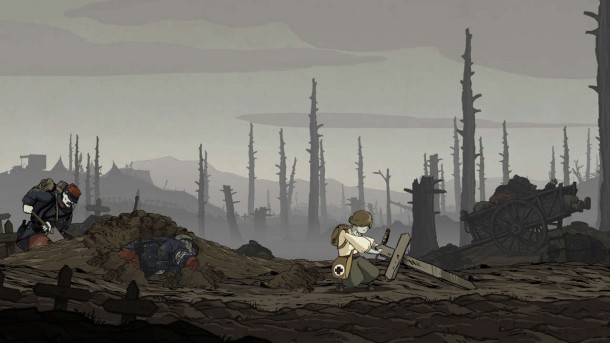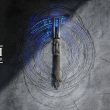Valiant Hearts: A Game About War, Not a War Game
"We wanted to do a game about the war but not a war game, so that's why you don't kill people. The war kills them, but you don't kill them." That's what lead designer Julian Chevalier said when I asked him about the concept behind Valiant Hearts: The Great War, Ubisoft's upcoming game about World War I.
When I played Valiant Hearts recently at a preview event, I saw that the game wastes no time in putting a human face on war, focusing not on military strategy and the motivations of huge political powers but on how the machinations of those powers impacted the lives of ordinary people. The game starts as Karl, a German who has been living in France with his wife and newborn child, is forcibly separated from his family when the war breaks out. Back in Germany, Karl is conscripted into the German army, while his wife's father, Emile, is forced to enlist on the French side; Valiant Hearts isn't a story of good versus evil, but of regular people swept up in a conflict that is beyond their control.
The gameplay also tries to communicate the ordinary nature of the characters. This is not a power fantasy, and Emile is not a formidable killing machine. He's older, and fittingly, he struggles just to hoist himself over small obstacles. Another character, Anna, is a French nurse who, as Chevalier told me, "really wants to help people, and when I say people, I mean all people." Playing as her on a grim battlefield, I helped French and German soldiers alike. The game doesn't shy away from acknowledging the horrors of war, and as Anna, I had to amputate one poor soldier's arm, but the game didn't show the act itself, and the art style prevents such moments from being too soul-crushing. Chevalier said that the team wanted a visual style that would make the game's subject matter approachable for players of all ages.
Valiant Hearts also makes time for moments of sweetness and exuberance. A cute dog helps you solve many of the game's simple puzzles, and when he lies on his back and Emile rubs his belly, it may bring a smile to your face despite the devastation the characters have experienced. And in one inspired sequence, Anna drives through the bustling streets of Paris as you navigate obstacles that appear in rhythm with the music. It's a joyous moment.
Clearly Chevalier doesn't want you to be overcome with despair as you play Valiant Hearts, but he also doesn't want to paint a rosy picture of what was a horrible event. The game, he said, gets "darker and darker, because we wanted to match what the people felt at this time. In France, for instance, when the war started, they weren't happy, but they thought the war would only last a short time, and then they started to be in the trenches, to be stuck in the mud." Things became increasingly horrific as the war progressed, and I saw Valiant Hearts depict the Second Battle of Ypres, which was the first major use of poison gas by Germany.
Valiant Hearts joins This War of Mine as a game that aims to depict war not as an explosive, action-packed spectacle, but as a tragic event that tears ordinary lives asunder, and I'm glad to see games that are attempting to tell stories about war that strive not to empower you, but to make you feel like you're just doing what little you can in a situation that's much bigger than you are. Valiant Hearts will be released on June 25 for the Xbox One, Xbox 360, PlayStation 3, PlayStation 4, and PC.









